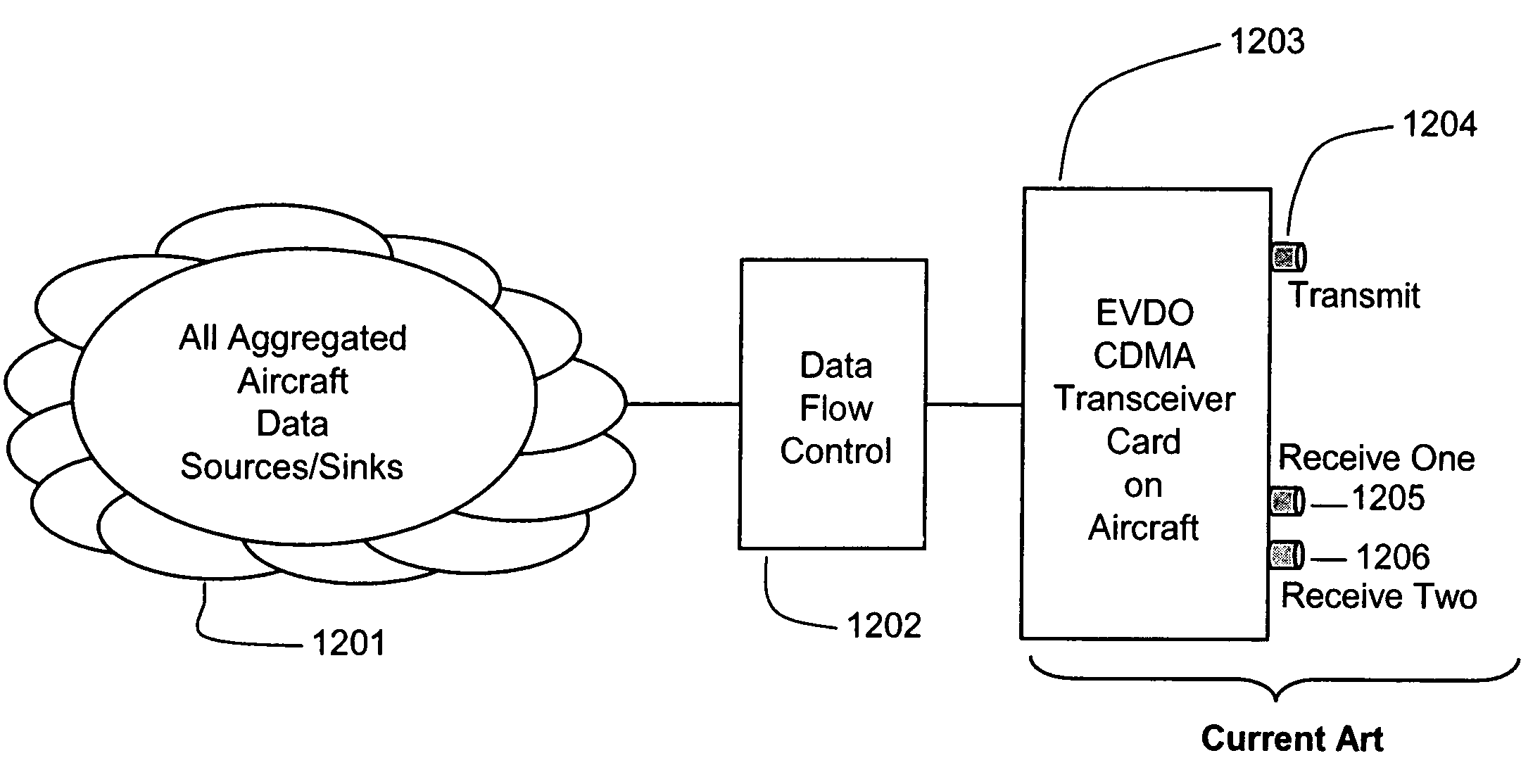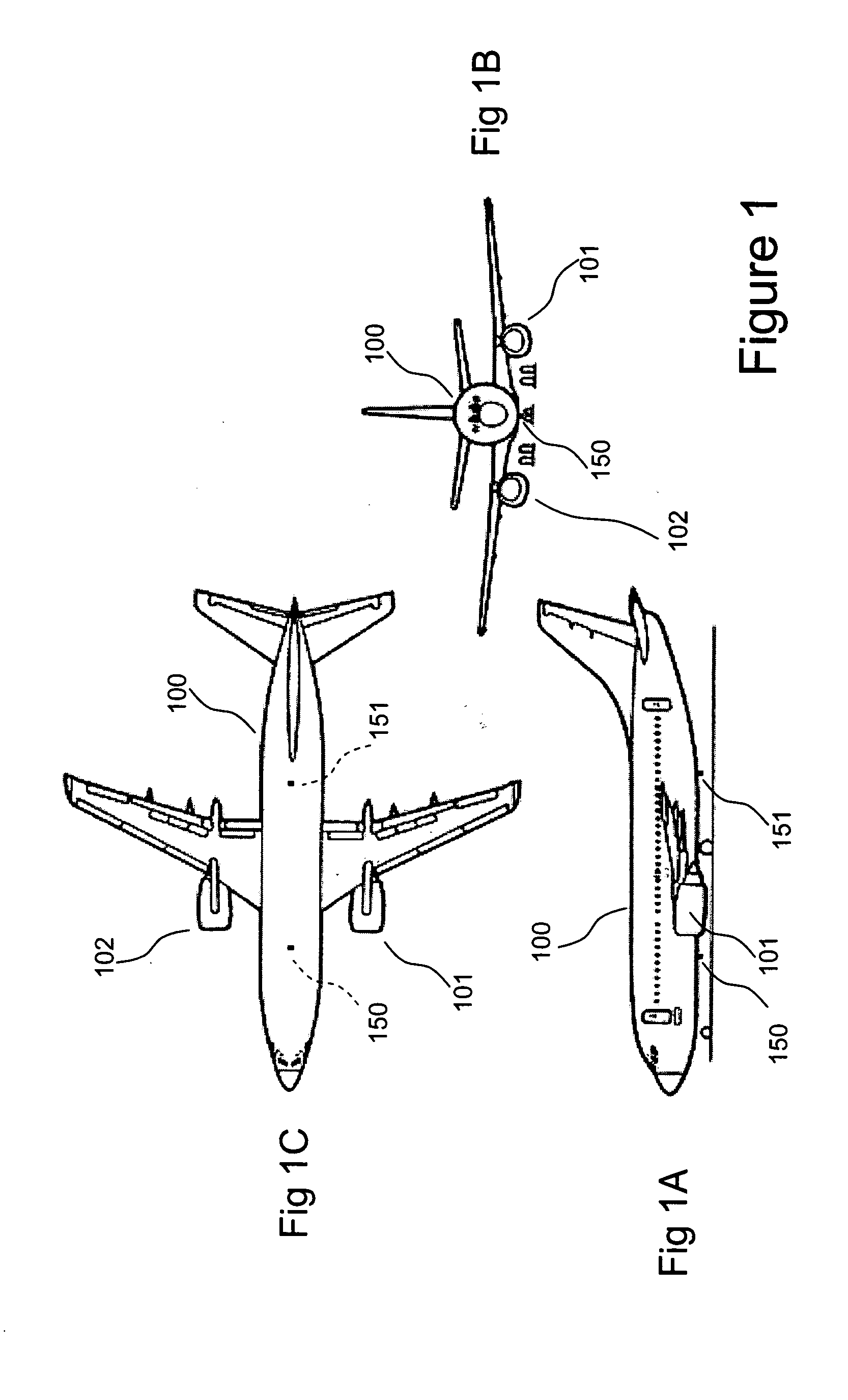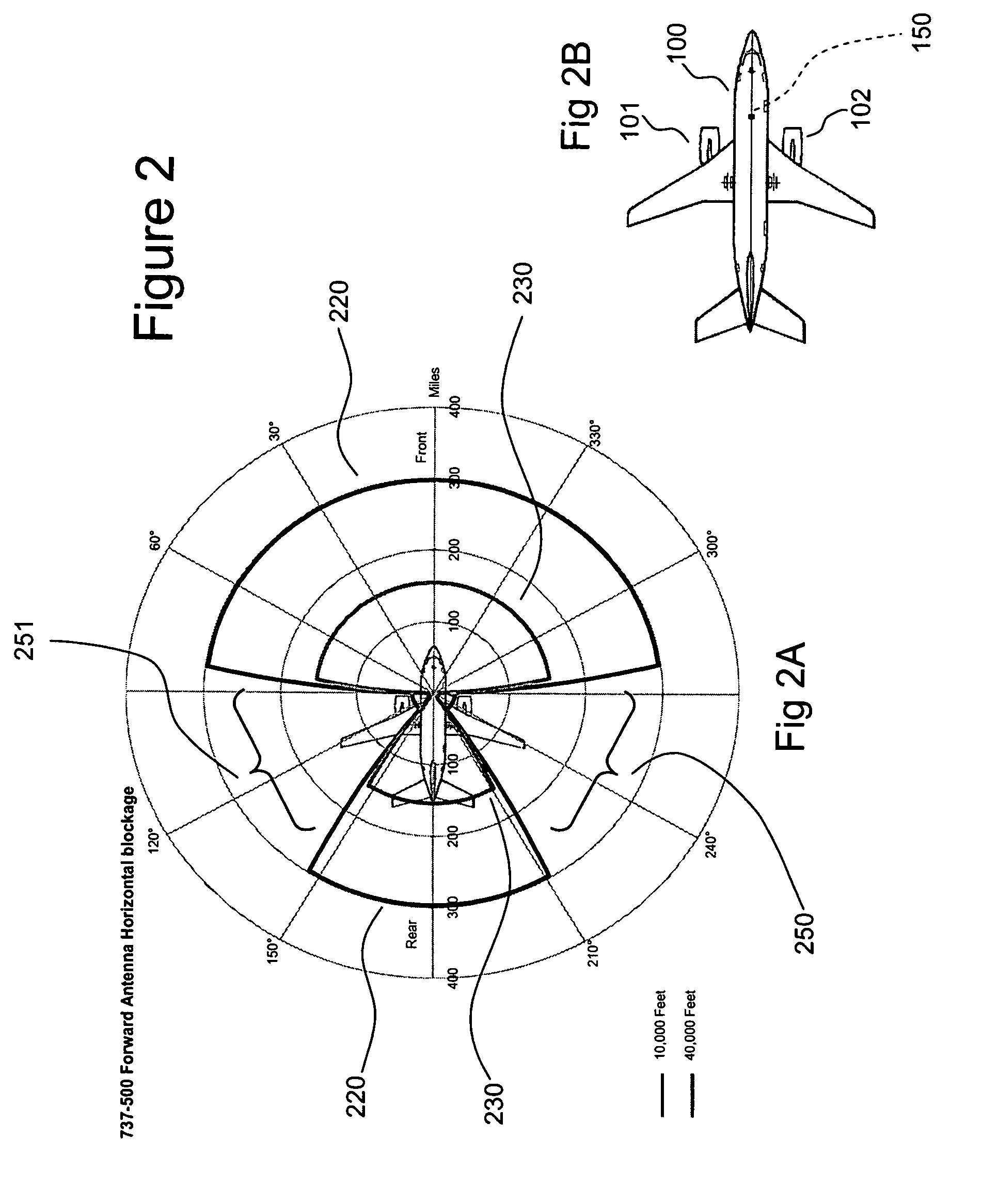Multi-link aircraft cellular system for simultaneous communication with multiple terrestrial cell sites
a cellular system and multi-link technology, applied in the field of cellular communication, can solve the problems of limited radio frequency spectrum available, limited call handling capacity in any single cell, radio frequency communication link between aircraft and terrestrial base stations, etc., to increase the call handling capacity, increase the overall traffic throughput, and increase the network availability of the composite air-to-ground radio frequency communication link substantially more robust
- Summary
- Abstract
- Description
- Claims
- Application Information
AI Technical Summary
Benefits of technology
Problems solved by technology
Method used
Image
Examples
Embodiment Construction
[0048]The provision of highly reliable and highly available Air-To-Ground cellular communications service is a complex process, since many of the components of the Air-To-Ground cellular communications network interact and influence the composite overall Air-To-Ground cellular communications network traffic handling capacity (data, voice, other). Changing a network component may improve one network attribute but simultaneously impair another. From a systems perspective, the network design should have both high reliability and high availability as well as have high traffic capacity. To operationally manage these attributes, the network architecture should be capable of being scaled up over time to incrementally add traffic capacity.
Call Handling Capacity Enhancement Problem
[0049]In particular, the issue of capacity enhancement for Air-To-Ground cellular communications networks is an acute problem, since the Air-To-Ground Radio Frequency communications link represents a fixed bandwidt...
PUM
 Login to View More
Login to View More Abstract
Description
Claims
Application Information
 Login to View More
Login to View More - R&D
- Intellectual Property
- Life Sciences
- Materials
- Tech Scout
- Unparalleled Data Quality
- Higher Quality Content
- 60% Fewer Hallucinations
Browse by: Latest US Patents, China's latest patents, Technical Efficacy Thesaurus, Application Domain, Technology Topic, Popular Technical Reports.
© 2025 PatSnap. All rights reserved.Legal|Privacy policy|Modern Slavery Act Transparency Statement|Sitemap|About US| Contact US: help@patsnap.com



